- Supplements
- Fat Burners
- Pre Workout Booster
- Testo Booster
- Ephedrine HCL
- ECA stack
- Yohimbine
- Prohormones
- SARMs
- Power
- Muscle
- Accessories
- Fat loss
- Diet
- Health
- Endurance
-
50€+ Order = Free Shipping
*AT & DE
Manufacturers
BESTSELLER
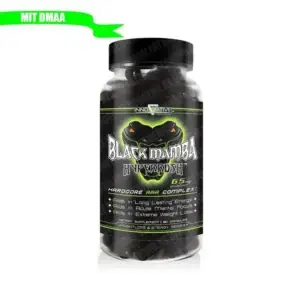
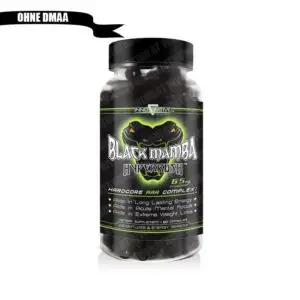
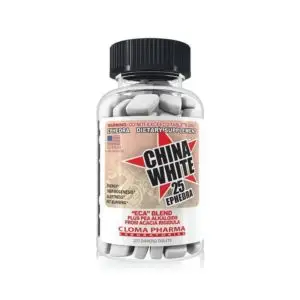

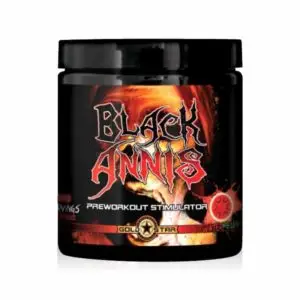
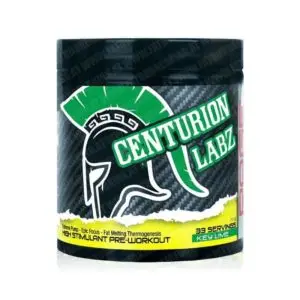
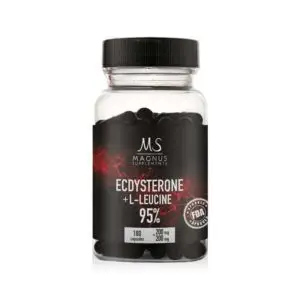
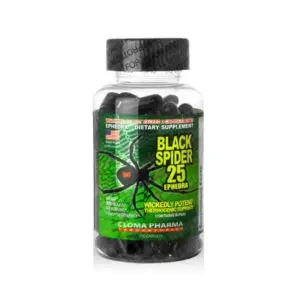
About
FATBURNERKING


From supporting the immune system to promoting mental health, NAC offers a variety of benefits that have brought it to the attention of medical professionals and researchers over the years.
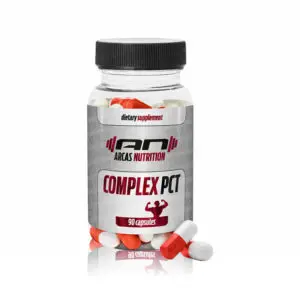
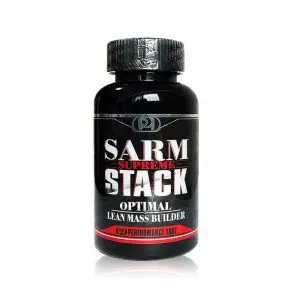
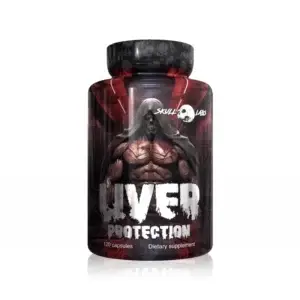
N-acetyl-L-cysteine (NAC) is the stabilized form of the amino acid L-cysteine and has a higher bioavailability. In the body, NAC is converted into L-cysteine, which is used for the biosynthesis of sulphur-containing compounds such as taurine and coenzyme A. NAC is known for its strong antioxidant properties as it can neutralize reactive oxygen species to reduce oxidative stress.
NAC plays a central role as a precursor for glutathione, the body's most important cellular antioxidant. This gives NAC a crucial function in the antioxidant defense system. Clinical studies have shown that the regular intake of NAC in a dosage of 11.6 g daily for three months does not cause any serious side effects.
In summary, NAC provides significant health benefits, including antioxidant, liver protection and oxidative stress relief. These properties make NAC a valuable component of orthomolecular medicine. Here is a brief overview of the main functions of NAC:
| Function | Description |
| Antioxidant | Neutralizes free radicals |
| Glutathione precursor | Important for the cellular defense system |
| Sulfur-containing compound | Supports the synthesis of taurine and more |
NAC's health benefits are manifold, from its anti-inflammatory effect to protection against chronic bronchitis.
N-acetyl-L-cysteine (NAC) comes in a stable form and therefore also has a higher bioavailability of L-cysteine, as it is converted into L-cysteine in the liver. This property makes NAC particularly valuable in orthomolecular medicine.
Main advantages of NAC:
In addition, NAC is known for its positive effect on chronic bronchitis and mental illness by neutralizing free radicals due to its antioxidant and anti-inflammatory properties.



N-acetyl-L-cysteine (NAC) is a widely used dietary supplement based on the acetylated form of the amino acid L-cysteine. It has gained a firm place in the treatment and prevention of diseases due to its many health benefits. One of the main characteristics of NAC is its ability to stimulate the production of glutathione in the body. Glutathione is a powerful antioxidant that plays a central role in protecting cells from oxidative stress. In addition, NAC is often used in medicine, for example to treat paracetamol poisoning, by replenishing glutathione stores in the liver and thus preventing cell damage. Overall, the antioxidant and anti-inflammatory properties of NAC offer a wide range of health benefits.
N-acetyl-L-cysteine is known for its powerful antioxidant properties. Through its ability to promote the production of glutathione, one of the body's most powerful antioxidants, NAC supports the body's antioxidant defense system. It neutralizes free radicals that can damage cells and tissues, protecting against oxidative stress. This is crucial as oxidative stress is associated with a variety of chronic diseases and the aging process. The antioxidant capabilities of NAC help to slow down the aging process and reduce the risk of heart disease and other chronic conditions. By acting directly as an antioxidant, NAC minimizes the damaging effects of reactive oxygen species and maintains cell health and functionality.
N-acetyl-L-cysteine plays an essential role in supporting lung health. The best-known effect is its mucolytic property, which liquefies the mucus in the airways, making it easier to cough up. This is particularly beneficial for chronic respiratory diseases such as COPD and chronic bronchitis.
NAC also protects the lungs from the harmful effects of environmental toxins and particulate matter thanks to its antioxidant and anti-inflammatory properties. The promotion of glutathione production by NAC is of central importance as it strengthens lung and immune function.
By neutralizing free radicals and fighting inflammation, NAC helps to improve lung function and thus sustainably supports respiratory health.
N-acetyl-L-cysteine offers significant benefits for the cardiovascular system, primarily by reducing oxidative stress. This stress is a major factor in the development of cardiovascular disease, including atherosclerosis. NAC helps to reduce oxidative stress and thus reduce the risk of these diseases.
By promoting glutathione production, NAC also helps to protect blood vessels by improving their functionality. In combination with its ability to promote blood flow through its dilating properties, NAC can regulate blood pressure. Regular intake of NAC thus supports the cardiovascular system and helps to reduce the risk of high blood pressure and coronary heart disease.
NAC plays a crucial role in strengthening the immune system. It does this mainly by increasing glutathione levels in the cells, which reduces oxidative stress. A sufficient supply of glutathione is essential for efficient immune function, as various immune cells depend on it.
A glutathione deficiency can impair the activity of immune cells, which can be compensated for by supplementation with NAC. By modulating the immune response, NAC helps to reduce susceptibility to infections and strengthen the immune defense. Studies show that NAC can optimize the immune response and contribute to the defense against viral pathogens.
N-acetyl-L-cysteine supports liver detoxification through its ability to promote glutathione production. Glutathione plays a central role in the biotransformation and excretion of harmful substances. As the main antioxidant in the liver, glutathione is crucial for detoxification functions.
In cases of paracetamol poisoning, NAC is used medically to replenish depleted glutathione stores and prevent liver damage. It also provides liver protection when using certain medications, such as anti-tuberculosis drugs. Thanks to its antioxidant properties, NAC protects liver cells from damage and supports liver health in the long term.
N-acetyl-L-cysteine can provide important support for mental health. By increasing glutathione levels in the brain, NAC has an antioxidant and anti-inflammatory effect, which can help prevent neurodegenerative diseases.
It also influences neuronal processes that are crucial for mental health. NAC is considered useful in overcoming addictive behavior and obsessive-compulsive disorders.
The role of NAC in regulating neuronal activity shows its potential in stabilizing mood and supporting mental health during stress and other strains.



N-acetyl-L-cysteine (NAC) is a popular dietary supplement that is valued for its numerous health benefits. In particular, NAC plays a central role in the production of glutathione, one of the body's most powerful antioxidants, which neutralizes free radicals and thus minimizes oxidative stress. This antioxidant action of NAC has a remarkable positive effect, particularly in supporting lung health and protecting the liver. Clinical studies have found that the typical daily dose of NAC is between 400 and 600 mg, usually divided into two to three doses daily. In addition to its antioxidant effects, NAC also has anti-inflammatory properties and may contribute to improved cardiovascular health by reducing homocysteine plasma levels.
The correct dosage of N-acetylcysteine is crucial in order to take advantage of the full range of health benefits that NAC offers. NAC is usually offered in different dosage forms such as tablets, capsules or powder to allow easy customization to individual needs. A general recommendation is to take one capsule a day, ideally containing 600 mg of N-acetyl-L-cysteine. This should be taken with plenty of liquid with a meal to optimize absorption.
For long-term use, the dosage can be adjusted individually, but vitamin C should also be taken to prevent the formation of cystine stones.
For optimal storage of NAC capsules, it is recommended to keep them at room temperature, dry and protected from light. It is particularly important to protect the capsules from excessive heat to ensure their stability and effectiveness over time. These measures can support the long-term effectiveness of NAC's antioxidant and anti-inflammatory effects.
© copyright 2018-2025 Fatburnerking.at
| Cookie | Duration | Description |
|---|---|---|
| cookielawinfo-checkbox-advertisement | 1 year | This cookie is set by the GDPR Cookie Consent Plugin and is used to record the user's consent for the cookies in the "Advertising" category. |
| cookielawinfo-checkbox-analytics | 11 months | This cookie is set by GDPR Cookie. The cookie is used to store user consent for cookies in the "Analytics" category. |
| cookielawinfo-checkbox-functional | 11 months | The cookie is set based on the consent of the GDPR cookies to record the user's consent for cookies in the "Functional" category. |
| cookielawinfo-checkbox-necessary | 11 months | This cookie is set by GDPR Cookie. Cookies are used to store the user's consent to the storage of cookies in the "Necessary" category. |
| cookielawinfo-checkbox-others | 11 months | This cookie is set by GDPR Cookie. The cookie is used to store the user's consent for cookies in the "Other" category. |
| cookielawinfo-checkbox-performance | 11 months | This cookie is set by GDPR Cookie. The cookie is used to store user consent for cookies in the "Performance" category. |
| CookieLawInfoConsent | 1 year | Records the default button status of the corresponding category and the status of CCPA. It only works in coordination with the primary cookie. |
| elementor | never | This cookie is used by the website's WordPress theme. It allows the website owner to implement or change the content of the website in real time. |
| viewed_cookie_policy | 11 months | The cookie is set by the GDPR cookie and is used to store whether the user has consented to the use of cookies or not. It does not store any personal data. |
| Cookie | Duration | Description |
|---|---|---|
| ssupp.vid | 6 months | Cookie set by Smartsupp to record the visitor ID. |
| ssupp.visits | 6 months | Cookie set by Smartsupp to record the number of previous visits, necessary to track automatic messages. |
| Cookie | Duration | Description |
|---|---|---|
| _ga | 2 years | The _ga cookie installed by Google Analytics calculates visitor, session and campaign data and also tracks website usage for the website analytics report. The cookie stores information anonymously and assigns a randomly generated number to identify unique visitors. |
| _gat_gtag_UA_179465762_1 | 1 minute | Set by Google to distinguish users. |
| _gid | 1 day | The _gid cookie installed by Google Analytics stores information about how visitors use a website and at the same time creates an analytics report about the website's performance. Some of the data collected includes the number of visitors, their source and the pages they visit anonymously. |
| tk_ai | 5 years | JetPack sets this cookie to store a randomly generated anonymous ID that is only used in the administration area and for general analytics tracking. |
| tk_lr | 1 year | The tk_lr is a referral cookie set by the JetPack plug-in on websites using WooCommerce that analyses referral behaviour for Jetpack. |
| tk_or | 5 years | The tk_or is a referral cookie set by the JetPack plug-in on websites using WooCommerce that analyses referral behaviour for Jetpack. |
| tk_qs | 30 minutes | JetPack sets this cookie to store a randomly generated anonymous ID that is only used in the administration area and for general analytics tracking. |
| tk_r3d | 3 days | JetPack installs this cookie to collect internal metrics for user activity to improve the user experience. |
| tk_tc | Session | JetPack sets this cookie to record details of how users use the website. |
| Cookie | Duration | Description |
|---|---|---|
| _fbp | 3 months | This cookie is set by Facebook to display ads after visiting the website, either on Facebook or on a digital platform powered by Facebook Ads. |
| fr | 3 months | Facebook sets this cookie to display relevant ads to users by tracking user behaviour on the web, on websites with Facebook Pixel or Facebook Social Plug-in. |
| Cookie | Duration | Description |
|---|---|---|
| cookies.js | Session | No description available. |
| weglot_wp_rocket_cache | Session | No description |